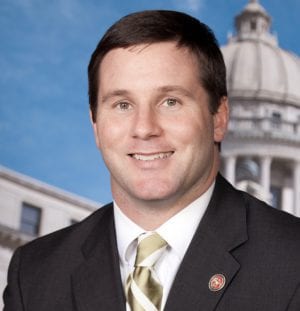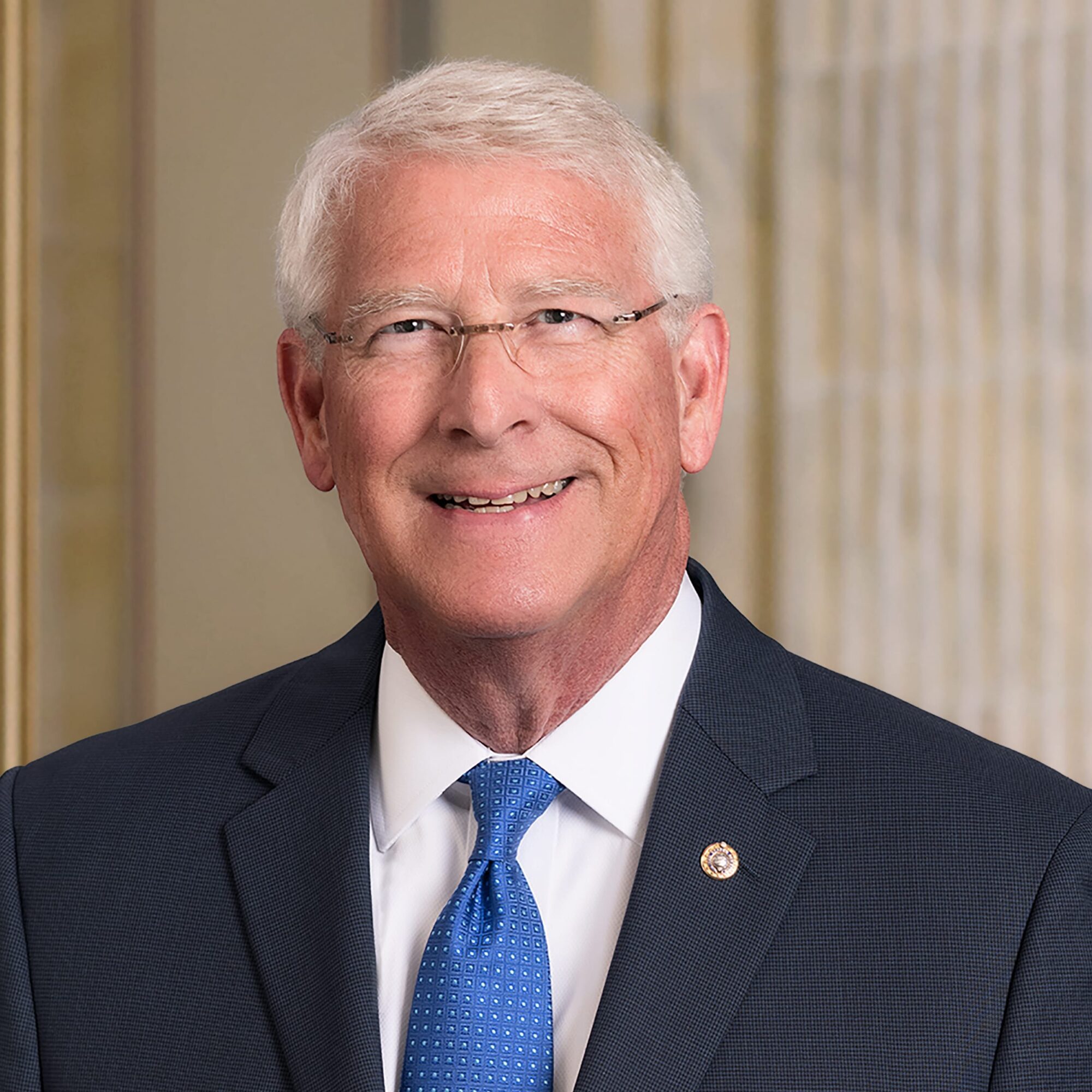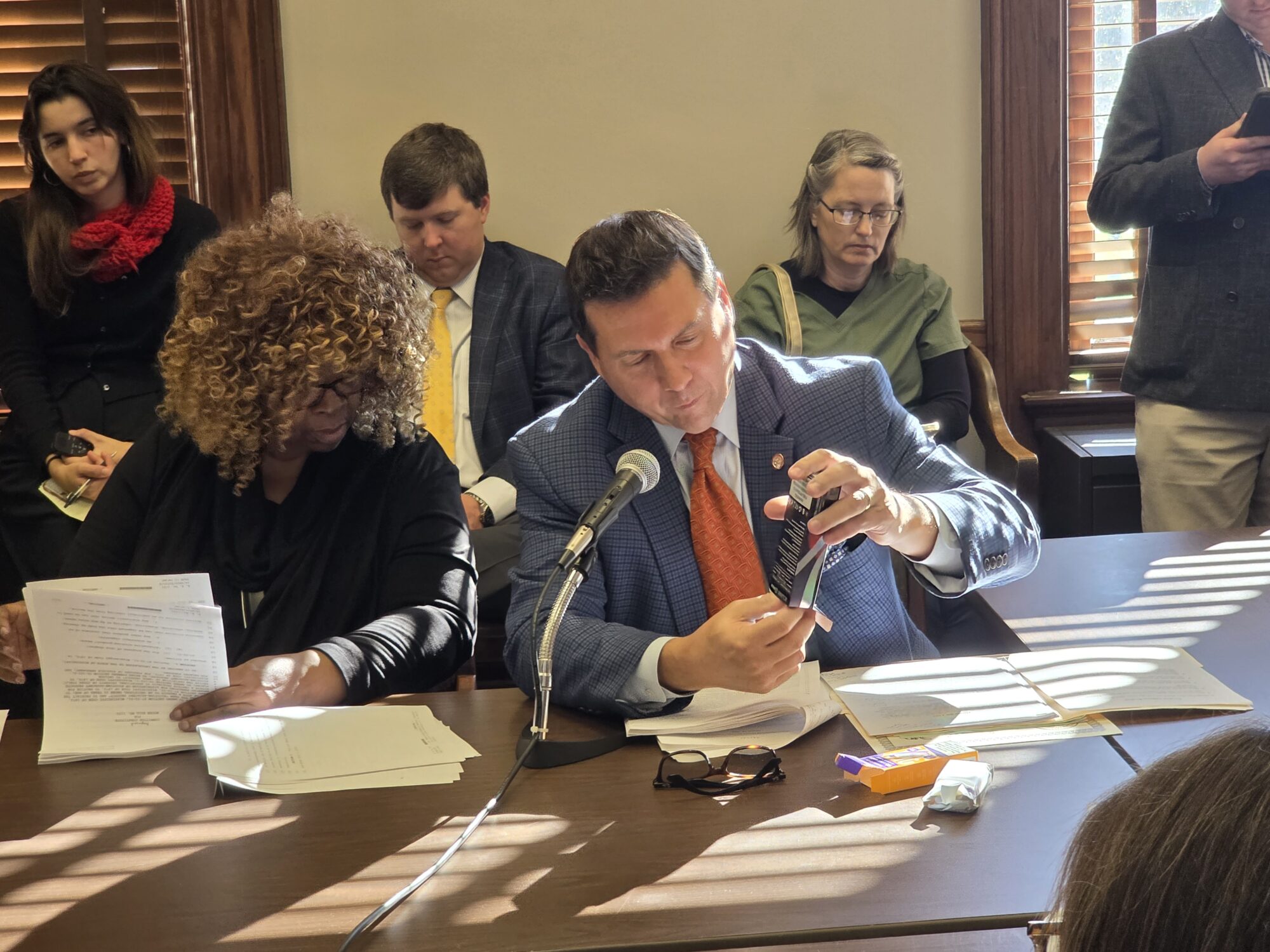
Rep. Trey Lamar
A new bill from the Mississippi House of Representatives, HB 1013 authored by House Ways and Means Chairman Trey Lamar (R) would establish a Medicaid Commission to oversee the Division of Medicaid currently operated under the instruction of the Governor’s office.
The proposed Commission would be made up of seven members. Three would be appointed by the Governor and four by the Lt. Governor initially, with later appointments made with the advice and consent of the state Senate. The Speaker of the House would have the ability to nominate two of the Lt. Governor’s appointees.
This marks a departure from the current circumstance as Medicaid is part of the executive branch with the Executive Director appointed by and reporting to the Governor.
The bill further clarifies the qualifications of the members and what experience they bring to the table, requiring some be a representative of Medicaid providers or from each Supreme Court or Congressional District.
It will then be up to the Commission of seven to appoint an Executive Director, who is required to either be a physician with administrative experience or a person holding a graduate degree in medical care administration, public health, hospital administration or something similar. The individual can also hold a bachelor’s degree with at least three years experience in management-level administration for policy development for Medicaid.
“House bill 1013 would essentially remove the Division of Medicaid from underneath the Governor and place a seven member board over the Division of Medicaid,” said Representative Lamar.
The language of the bill could cause some confusion when it states that it would “Abolish the Division of Medicaid and transfer the powers, duties, property and Employees of the Division to the Medicaid Commission.”
However, Lamar said this language is a matter of semantics. In laymen’s terms the bill would take the infrastructure and operations of the Division of Medicaid and rename the program under the Medicaid Commission within Mississippi Law. The substantive change would be that the authority would be moved from the Governor to the commission.
Rep. Lamar said with this change you would have seven sets of eyes over what has become a $6 billion industry. Medicaid is the largest budget in the state. There is roughly $1 billion of state dollars that go into the program and $5 billion of federal. While much of how those dollars is dictated by the federal government, the new board would also have input.
He said this commission would function similarly to the Department of Education, Institutions of Higher Learning, and Department of Health.
This would go into effect by July 1, 2021.
The appointment of the Medicaid Executive Director is at this time reserved for the Governor.
Currently, Medicaid is led by Executive Director Drew Snyder who was first appointed to the position by Governor Phil Bryant. The team also consists of a Deputy Executive Director, with several offices that work in conjunction with each other to accomplish regular work.
Medicaid serves roughly 720,000 Mississippians.
Mississippi’s Division of Medicaid was established in 1969 by the Mississippi Legislature. It is housed within the Office of the Governor and is designated by state statute as the single state agency responsible for administering Medicaid. It currently employs over 1,300 people with 30 regional offices and over 80 outstations.
Lamar said this bill would not impact those jobs, but simply remove the division from under the Governor’s purview.
While tensions have been high in the past concerning Medicaid spending, the Division of Medicaid has made great strides fiscally since Snyder took over. For FY 2022, Medicaid did not request the typical $50 million deficit that the Legislature has become accustomed to in recent years.
Prior to the COVID-19 pandemic, the Division had roughly $40 million in special funds due to safe budgeting for the last few years. They have also continued to expand telemedicine opportunities, a program that was being prepped before the necessity of at home doctor visits due to social distancing.
In late 2020 Medicaid hearings, even providers complimented Snyder on the job he was doing to re-vamp the program, applauding his “open door” policy with everyone. Lamar echoed many of these sentiments, saying Snyder has done a great job over the Division.
The current concerns over Medicaid in Mississippi seem to revolve around Managed Care, the five percent reimbursement for providers and the difficult credentialing process. Many providers told lawmakers in October that they would like to see a more streamlined credentialing process.
Over the years there have been unsuccessful attempts by Legislative Democrats to expand Medicaid in Mississippi. Republicans have fought the measure believing that the long term impact of substantially higher Medicaid enrollments would have a devastating effect on the state’s budget. Many lawmakers believe that Snyder and his team have demonstrated Medicaid expansion is not necessary to run an efficient and effective program.
Lamar said a change like this is not unprecedented. It was only in the mid-80’s that the authority over the Division of Medicaid was handed over to the Governor.
“This would just be returning the state of Mississippi back to the way we use to do it and I think it makes sense,” said Lamar.











